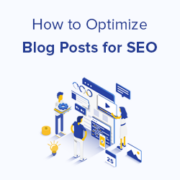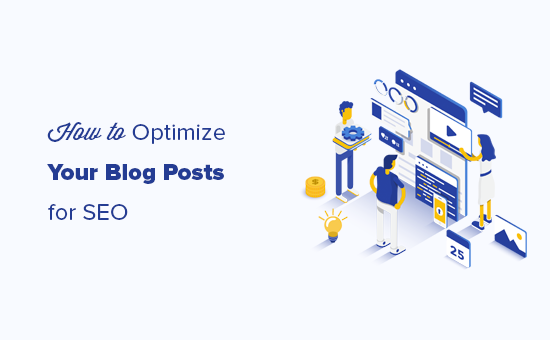How to Discuss Domain Authority to a Non-SEO
Do you ever need to describe the significance of Domain Authority to customers or co-workers who have little or no SEO experience? If so, this week's Whiteboard Friday host-- Andy Crestodina-- walks through how to get your message across effectively.
SEO is in fact really hard to describe. There are numerous concepts. It's likewise really crucial to discuss so that we can reveal worth to our clients and to our companies.
We're a web design company here in Chicago. I've been doing SEO for twenty years and discussing it for about as long. This video is my best effort to help you explain a truly essential idea in SEO, which is Domain Authority, to somebody who doesn't know anything at all about SEO, to somebody who is non-technical, to someone who is perhaps not even a marketer.
Here is one framework, one set of language and words that you can use to try to describe Domain Authority to people who perhaps need to understand it but do not have a background in this stuff whatsoever.
Browse ranking factors
They type something into a search engine. They see search outcomes.
Why do they see these search engine result instead of something else? The factor is: search ranking aspects determined that these were going to be the leading search results for that inquiry or that keyword or that search phrase.
Importance
There are two main search ranking factors, in the end 2 reasons any websites ranks or doesn't rank for any phrase. Those 2 main elements are, first of all, the page itself, the words, the content, the keywords, the significance.
That's one of the key search ranking aspects is significance, content and keywords and things on pages. There's a second, super essential search ranking element. It's something that Google innovated and is now a truly, really important thing throughout the web and all search.
Hyperlinks
Do these pages have links to them? Have they connected to these pages and these sites? That is called authority.

The 2 primary search ranking aspects are importance and authority. Therefore, the 2 primary kinds of SEO are on-page SEO, producing material, and off-site SEO, PR, link structure, and authority. Due to the fact that links essentially are trust. Websites, links to websites, that's kind of like a vote.
That's saying that this web page is probably reliable, most likely crucial. If a lot of pages connect to your page, that includes trustworthiness. That's important that there's a number of websites that connect to you.
Connect quality
Links from reliable websites are more important than simply any other link. It's the amount and the quality of links to your site or links to your page that has a lot to do with whether or https://ionline.com.au not you rank when individuals search for an associated crucial expression.
If a page doesn't rank, it's got one of two problems generally. It's either not a fantastic page on the subject, or it's not a page on a website that is trusted by the online search engine since it hasn't developed enough authority from other websites, related sites, media websites, other websites in the industry. The name for this stuff initially in Google was called PageRank
PageRank.
Capital P, capital R, one word, PageRank. Not websites, not search engine result page, but called after Larry Page, the man who kind of came up with this, among the co-founders at Google. PageRank was the number, 1 through 10, that all of us utilized to type of understand. It showed up in this toolbar that we utilized back then.

They stopped reporting on that. They don't update that anymore. We do not actually know our PageRank any longer, so you can't truly tell. The way that we now comprehend whether a page is credible among other websites is by using tools that emulate PageRank by similarly crawling the web, looking to see who's connecting to who and then creating their own metrics, which are essentially proxy metrics for PageRank.
Domain Authority
It's called Domain Authority. Other search tools, other SEO tools also have their own, such as SEMrush has one called Authority Rating. They are showing whether or not a site or a page is relied on amongst other sites due to the fact that of links to them.
Now we know for a reality that some links deserve much, much more than others. We can do this by reading Google patents or by experiments or simply best practices and knowledge and direct knowledge that some links deserve a lot more.
But it's not just that they're worth a little bit more. Hyperlinks from sites with great deals of authority are worth significantly more. It's not actually a reasonable battle. Some websites have tons and lots and tons of authority. The majority of sites have extremely, very bit. It's on a curve. It's a log scale.
It's on a rapid curve the quantity of authority that a site has and its ranking capacity. The value of a link from another site to you is on an exponential curve. Links from some sites deserve significantly more than links from other smaller sized sites, smaller blogs. These are measurable within these tools, tools like Moz, tools that emulate the PageRank metric.
And what they can do is look at all of the pages that rank for a phrase, take a look at all of the authority of all of those websites and all of those pages, and after that average them to show the most likely problem of ranking for that key expression. The difficulty would be basically the average authority of the other pages that rank compared to the authority of your page and after that figure out whether that's a page that you actually have a possibility of ranking for or not.

This could be called something like keyword trouble. I searched for "baseball coaching" using a tool. I utilized Moz, and I discovered that the trouble for that essential phrase was something like 46 out of 100. Simply put, your page needs to have about that much authority to have a chance of ranking for that expression. There's a subtle distinction in between Page Authority and Domain Authority, however we're going to set that aside in the meantime.
That assists us understand the level of authority that we would have to have to have an opportunity of ranking for that crucial expression. If we do not have enough authority, it doesn't matter how remarkable our page is, we're not likely to ever rank
.
It's truly important to understand one of the things that Domain Authority tells us is our ranking capacity. That's the very first thing that the Domain Authority specifies, measures, programs.
If a super reliable website links to us, high Domain Authority website, that Domain Authority in that case of that website is showing us the worth of that link to us. A link from a website, a brand-new blog, a young site, a smaller brand name would have a lower Domain Authority, showing that that link would have far less value.
Conclusion.
Bottom line, Domain Authority is a proxy for a metric inside Google, which we no longer have access to. It's developed by an SEO tool, in this case Moz. When spelled with a capital D, capital A, it's Moz's own metric. It reveals us two things. Domain Authority is the ranking potential of pages on that domain. And second of all, Domain Authority measures the worth of another site ought to that website link back to your site. That's it.